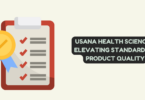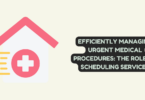
The importance of continuing medical education
In the ever-evolving landscape of healthcare, the importance of continuing medical education (CME) cannot be overstated. It serves as the cornerstone for ensuring healthcare professionals stay abreast of the latest advancements, methodologies, and best practices in their respective fields. In a world where medical knowledge expands rapidly, CME becomes not just beneficial but indispensable for maintaining high standards of patient care, enhancing clinical outcomes, and fostering professional development.
Through CME, practitioners gain access to the latest evidence-based practices, central line training, guidelines, and protocols, enabling them to make informed decisions and provide the most effective treatments. This continual learning process minimizes the risk of outdated practices and ensures that patients receive care that aligns with the current standards of practice.
Cultivating Lifelong Learning
Furthermore, CME cultivates a culture of lifelong learning among healthcare professionals. Medicine is not a static discipline; it requires constant adaptation to new discoveries and innovations. By engaging in ongoing education, clinicians cultivate a mindset of curiosity, critical thinking, and innovation. They become more receptive to change and more adept at integrating new knowledge into their clinical practice. This culture of lifelong learning not only benefits individual practitioners but also contributes to the overall advancement of healthcare as a whole.
Adaptability and Innovation: This culture of continuous learning encourages practitioners to stay abreast of the latest developments, fostering adaptability and innovation in the face of new challenges and opportunities.
Addressing Healthcare Disparities
Moreover, CME plays a crucial role in addressing healthcare disparities and improving patient outcomes. Access to quality healthcare is not uniform across populations, and underserved communities often face disproportionate health challenges. By participating in CME activities focused on cultural competence, health equity, and addressing social determinants of health, healthcare professionals can better understand and address the unique needs of diverse patient populations.
By equipping practitioners with the knowledge and skills to deliver more personalized and effective care, CME contributes to reducing disparities in healthcare delivery and improving outcomes for all patients, regardless of background or circumstance.
Fostering Interdisciplinary Collaboration
In addition to enhancing clinical competence, CME also fosters interdisciplinary collaboration and teamwork within healthcare settings. Medicine is increasingly becoming multidisciplinary, with healthcare teams composed of professionals from various backgrounds and specialties. CME provides opportunities for these professionals to come together, exchange knowledge, and learn from each other’s experiences.
Through collaborative learning activities, such as case discussions, workshops, and conferences, interdisciplinary teams can enhance communication, coordination, and ultimately, the quality of patient care.
Driving Innovation and Research
Furthermore, CME serves as a catalyst for innovation and research in healthcare. Many breakthroughs in medicine stem from the collaborative efforts of clinicians, researchers, and industry experts. By engaging in CME activities focused on research methodologies, evidence-based practice, and emergency medicine skills courses, healthcare professionals are better equipped to contribute to the advancement of medical knowledge.
Additionally, CME encourages practitioners to participate in clinical trials, quality improvement initiatives, and translational research, thereby fostering a culture of innovation and continuous improvement within healthcare institutions.
Meeting Regulatory Requirements
Moreover, CME is essential for maintaining licensure, certification, and professional credentials in the ever-evolving regulatory landscape of healthcare. Regulatory bodies and professional organizations mandate certain requirements for ongoing education to ensure that practitioners demonstrate competence and proficiency in their respective fields.
Regulatory Compliance: By fulfilling these requirements through CME, healthcare professionals uphold the highest standards of practice and demonstrate their commitment to lifelong learning and professional development, instilling confidence in patients, regulatory agencies, and the public at large.
Addressing Public Health Challenges
Additionally, CME plays a vital role in addressing emerging public health challenges and global health crises. The COVID-19 pandemic, for example, underscored the importance of rapid dissemination of accurate information and the need for healthcare professionals to adapt quickly to changing circumstances.
Through targeted CME initiatives, practitioners were able to stay updated on the latest developments in COVID-19 diagnosis, treatment, and prevention strategies, facilitating a coordinated response to the pandemic and helping mitigate its impact on public health.
Promoting Career Advancement and Satisfaction
Furthermore, CME promotes career advancement and professional satisfaction among healthcare professionals. Continuous learning not only enhances clinical skills but also opens up new opportunities for career growth and specialization.
Career Development: Whether through pursuing advanced certifications, acquiring new skills, or expanding clinical expertise, CME empowers practitioners to advance their careers and achieve their professional goals, contributing to greater job satisfaction and overall well-being.
Enhancing Professional Competence and Confidence
Continuing Medical Education (CME) not only updates healthcare professionals on the latest advancements but also enhances their professional competence and confidence. Through engaging in ongoing education, clinicians refine their clinical skills, deepen their understanding of complex medical concepts, and hone their ability to apply evidence-based practices in real-world scenarios.
Clinical Proficiency
CME provides opportunities for practitioners to delve into specialized areas of medicine, allowing them to develop expertise in niche fields or subspecialties. This deepening of knowledge translates into improved diagnostic accuracy, better treatment outcomes, and ultimately, higher levels of patient satisfaction.
Confidence in Decision-Making
As healthcare professionals stay updated with the latest research and best practices, they gain confidence in their ability to make informed clinical decisions. This confidence is crucial, especially in high-pressure situations where split-second decisions can have significant implications for patient outcomes.
Conclusion
Continuing medical education is indispensable for advancing healthcare in today’s dynamic and complex environment. It ensures patient safety, fosters lifelong learning, addresses healthcare disparities, promotes interdisciplinary collaboration, drives innovation and research, maintains regulatory compliance, addresses public health challenges, and enhances career satisfaction among healthcare professionals. As medicine continues to evolve, the commitment to ongoing education remains paramount in ensuring that healthcare professionals are equipped with the knowledge, skills, and competencies needed to deliver high-quality care and improve patient outcomes.






